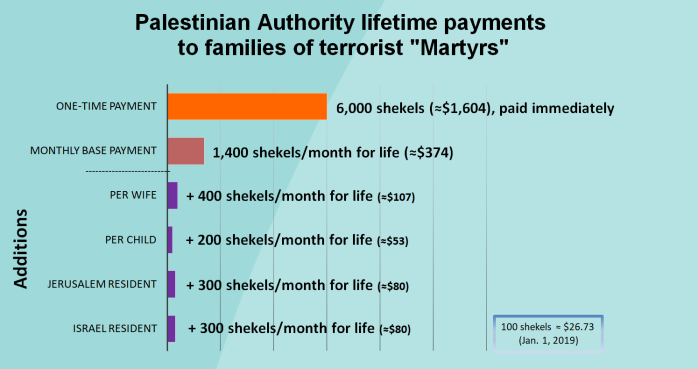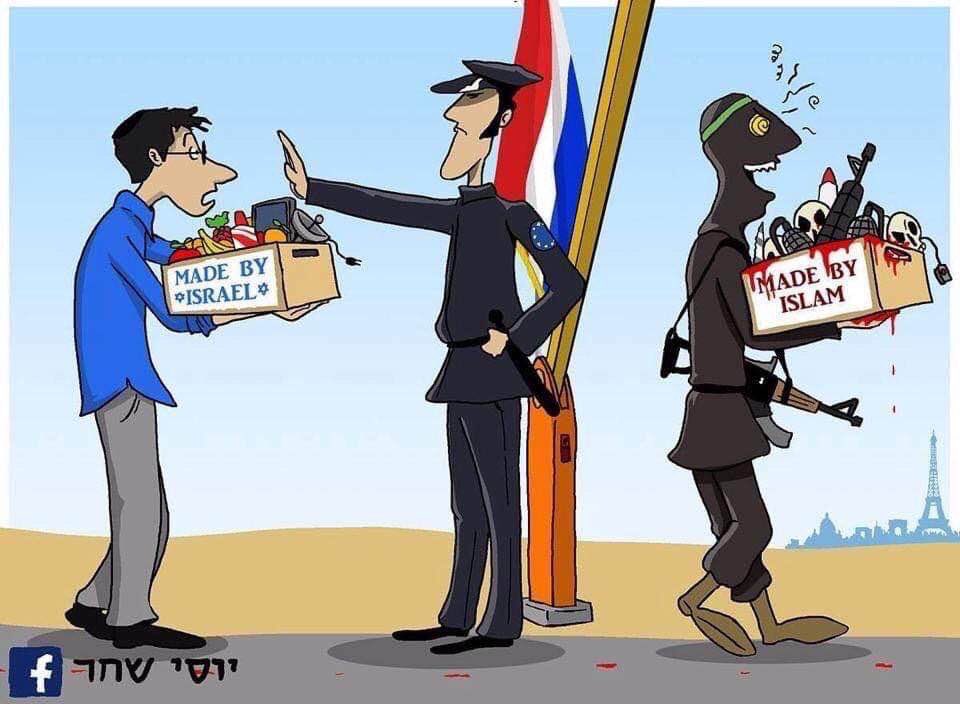Evelyn Gordon: Why the status quo is the least bad option for Palestinians
Even among people who recognize that Israeli-Palestinian peace is currently impossible, a growing number think that Israel must nevertheless quit the West Bank. Israel has a right to defend itself, their argument goes, but not by controlling another people for decades. Instead, it should withdraw to the “internationally recognized border” and protect itself from there, as other countries do.Daniel Pipes: The Middle East in flux: Eight trends
Forget for a moment that the “internationally recognized border” is an arrant fiction. Forget as well that Israel remains in the West Bank precisely because defending itself from the 1949 armistice lines (the abovementioned fictional border) hasn’t worked very well in either the West Bank—from which Israel partially withdrew in the 1990s before returning the following decade—or the Gaza Strip.
That still leaves another uncomfortable fact: As long as genuine peace remains impossible, Israeli control of the West Bank, despite the undeniable hardships it causes Palestinians, remains the least bad alternative for the Palestinians themselves. As evidence, just compare the Israeli-controlled West Bank to Gaza, which has been free of both settlers and soldiers since August 2005. By almost any parameter, life in the former is far better.
Take, for instance, casualties. According to B’Tselem’s statistics, Israeli security forces killed 5,706 Palestinians in Gaza from September 2005 through August 2019. That’s almost eight times the 756 killed by Israeli security personnel and settlers combined in the West Bank during this period (no Gazans were killed by settlers since there are no settlers there).
Nor is this surprising. Israel’s control of the West Bank means that suspected terrorists can often be arrested rather than killed, though shootouts (with attendant collateral damage) do occur. But in Gaza, where Israel has no troops, it can’t arrest terrorists. Thus the only way to fight terror is through military action, which naturally produces many more casualties among both combatants and civilians.
As ever, the Middle East is monumentally in flux. As usual, most developments are negative. Here’s a guide:PMW: PMW Special Report: Israel must implement 2nd half of anti-“Pay-for-Slay” law before the end of 2019
Water replaces petroleum as the key liquid: oil and gas still provide nearly 60% of the world’s energy, but this number is declining and even the wealthiest oil producers are feeling the pinch (“GCC states look to new taxes as oil revenues remain weak”). Contrarily, tensions over water are becoming a major source of international tensions (e.g., Turkey vs. Syria, Ethiopia vs. Egypt) and a driving force of domestic change (the Syrian revolt of 2011). It’s also a potential cause of massive migration; a former Iranian minister of agriculture predicts that water shortages will force up to 70% of the country’s population, or 57 million Iranians, to emigrate.
Anarchy replaces tyranny: of course, some tyrannies remain, notably in Turkey and Iran, but anarchy has become the region’s greater bane, including whole countries (Libya, Yemen, Syria) and parts of others (e.g., Sinai). Though generally less threatening to the outside world, anarchy is an even more miserable personal experience than tyranny, for it lacks guidelines. As a 13th century Koran scholar noted, “A year of the sultan’s tyranny does less harm than a moment of the people’s anarchy.”
The failure of Arab youths’ efforts to make improvements: around 1970, many Arabic-speaking countries began an era of corrupt strongman rule. Starting in Tunisia in December 2010, efforts to overthrow the old order have shaken governments but had few beneficial consequences. In some cases (Libya, Yemen, Syria), they led to civil war; in another (Egypt), they merely brought on a younger strongman. Recent uprisings in Algeria, Sudan, Iraq, and Lebanon have yet to conclude but odds are they, too, will end badly.
The decline of Islamism: after peaking in about 2012, the radical attempt to apply Islamic law severely and in full has lost ground in the Middle East. Several factors account for this: a fear of wild-eyed fanatics like Boko Haram, Shabaab, ISIS, and the Taliban; the dismal experience of Muslim peoples who have lived under Islamist rule (e.g., Egypt in 2012-13); and the fracturing of Islamists (e.g., in Syria) into competing and hostile factions. What might come after Islamism is unclear, but after a century of failure with it and other extremist ideologies (including fascism and communism), an era of anti-ideology might lie ahead.
Israel must deduct from transfers to PA in 2019 an additional 241 million shekels - the amount the PA paid to families of terrorist “Martyrs” in 2018
- 5 years ago today, two terrorists murdered 6 Israelis with knives and axes in a synagogue in West Jerusalem. The victims included rabbis, American citizens, and an Israeli Druze policeman. The terrorists were killed during their attack.
- Since the massacre, the PA has paid the families of these terrorist murderers no less than 204,000 shekels (almost $60,000) simply because their relatives murdered Israelis.
- Israeli law demands that Israel deduct from tax transfers to the PA in 2019 the amount that the PA paid in 2018 to terrorist prisoners and to families of dead terrorists – so-called “Martyrs.”
- Since February, the Israeli government has been deducting approximately 41 million shekels each month, 1/12 of the amount the PA paid to terrorist prisoners in 2018, which was 502 million shekels.
- In order to comply with Israeli law, the government must also deduct the full amount paid to families of dead terrorists by the end of 2019.
- This PMW special report shows that the additional amount that Israel must deduct from its tax transfers to the PA in the next two months is at least 241 million shekels – the sum the PA paid to families of dead terrorist “Martyrs” in 2018.
- PMW has calculated that there are at least 5,666 dead terrorists who were killed from September 2000 to the end of 2018 and whose families received an estimated 95 million shekels ($25.4 million) from the PA in 2018.










































.jpg)





